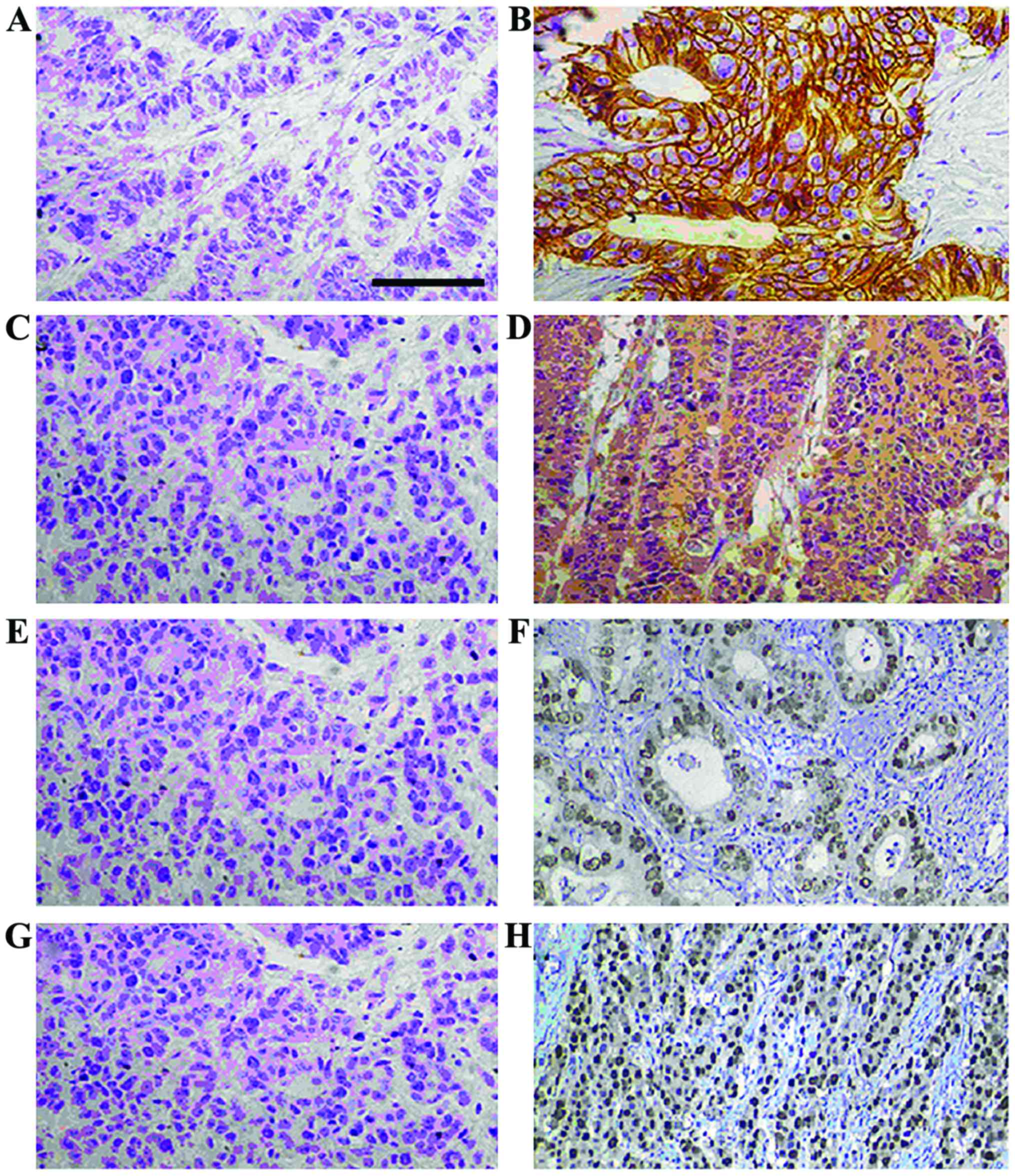|
1
|
Yung KW, Yung TT, Chung CY, Tong GT, Liu
Y, Henderson J, Welbeck D and Oseni S: Principles of cancer
staging. Asian Pac J Surg Oncol. 1:1–16. 2015.
|
|
2
|
Zheng YF, Tan LK, Tan BH, Sterling H and
Kane R: Principles of surgical oncology. Asian Pac J Surg Oncol.
1:17–26. 2015.
|
|
3
|
Ghoneum M, Felo N, Nwaogu OM, Fayanju IY,
Jeffe JA and Margenthaler DB: Clinical trials in surgical oncology.
Asian Pac J Surg Oncol. 1:73–82. 2015.
|
|
4
|
Hi G, Dong M, Sheng W, Zhou J, Yu D and
Sun W: Expression and clinical significance of Tspan 1 and Integrin
α6 in human pancreatic ductal adenocarcinoma. Zhonghua Wai Ke Za
Zhi. 52:781–786. 2014.(In Chinese). PubMed/NCBI
|
|
5
|
Scholz CJ, Kurzeder C, Koretz K, Windisch
J, Kreienberg R, Sauer G and Deissler H: Tspan-1 is a tetraspanin
preferentially expressed by mucinous and endometrioid subtypes of
human ovarian carcinomas. Cancer Lett. 275:198–203. 2009.
View Article : Google Scholar : PubMed/NCBI
|
|
6
|
Chen L, Zhu YY, Zhang XJ, Wang GL, Li XY,
He S, Zhang JB and Zhu JW: TSPAN1 protein expression: A significant
prognostic indicator for patients with colorectal adenocarcinoma.
World J Gastroenterol. 15:2270–2276. 2009. View Article : Google Scholar : PubMed/NCBI
|
|
7
|
Chen L, Yuan D, Wang GL, Wang Y, Wu YY and
Zhu J: Clinicopathological significance of expression of Tspan-1,
Jab1 and p27 in human hepatocellular carcinoma. J Korean Med Sci.
25:1438–1442. 2010. View Article : Google Scholar : PubMed/NCBI
|
|
8
|
Hölters S, Anacker J, Jansen L,
Beer-Grondke K, Dürst M and Rubio I: Tetraspanin 1 promotes
invasiveness of cervical cancer cells. Int J Oncol. 43:503–512.
2013.PubMed/NCBI
|
|
9
|
Desouki MM, Liao S, Huang H, Conroy J,
Nowak NJ, Shepherd L, Gaile DP and Geradts J: Identification of
metastasis-associated breast cancer genes using a high-resolution
whole genome profiling approach. J Cancer Res Clin Oncol.
137:795–809. 2011. View Article : Google Scholar : PubMed/NCBI
|
|
10
|
Cao J, Yang JC, Ramachandran V, Arumugam
T, Deng DF, Li ZS, Xu LM and Logsdon CD: TM4SF1 regulates
pancreatic cancer migration and invasion in vitro and in vivo. Cell
Physiol Biochem. 39:740–750. 2016. View Article : Google Scholar : PubMed/NCBI
|
|
11
|
Wang P, Bao W, Zhang G, Cui H and Shi G:
Transmembrane-4-L-six-family-1, a potential predictor for poor
prognosis, overexpressed in human glioma. Neuroreport. 26:455–461.
2015. View Article : Google Scholar : PubMed/NCBI
|
|
12
|
Nabokina SM, Senthilkumar SR and Said HM:
Tspan-1 interacts with the thiamine transporter-1 in human
intestinal epithelial cells and modulates its stability. Am J
Physiol Gastrointest Liver Physiol. 301:G808–813. 2011. View Article : Google Scholar : PubMed/NCBI
|
|
13
|
Jiang X, Zhang J and Huang Y: Tetraspanins
in cell migration. Cell Adhes Migr. 9:406–415. 2015. View Article : Google Scholar
|
|
14
|
Lu Z, Luo T, Nie M, Pang T, Zhang X, Shen
X, Ma L, Bi J, Wei G, Fang G and Xue X: TSPAN1 functions as an
oncogene in gastric cancer and is downregulated by miR-573. FEBS
Lett. 589:1988–1994. 2015. View Article : Google Scholar : PubMed/NCBI
|
|
15
|
Scholz CJ, Sauer G and Deissler H:
Glycosylation of tetraspanin Tspan-1 at four distinct sites
promotes its transition through the endoplasmic reticulum. Protein
Pept Lett. 16:1244–1248. 2009. View Article : Google Scholar : PubMed/NCBI
|
|
16
|
Sciuto TE, Merley A, Lin CI, Richardson D,
Liu Y, Li D, Dvorak AM, Dvorak HF and Jaminet SC: Intracellular
distribution of TM4SF1 and internalization of TM4SF1-antibody
complex in vascular endothelial cells. Biochem Biophys Res Commun.
465:338–343. 2015. View Article : Google Scholar : PubMed/NCBI
|
|
17
|
Dai J, Qian C, Su M, Chen M and Chen J:
Gastrokine-2 suppresses epithelial mesenchymal transition through
PI3K/AKT/GSK3β signaling in gastric cancer. Tumour Biol.
37:12403–124010. 2016. View Article : Google Scholar : PubMed/NCBI
|















